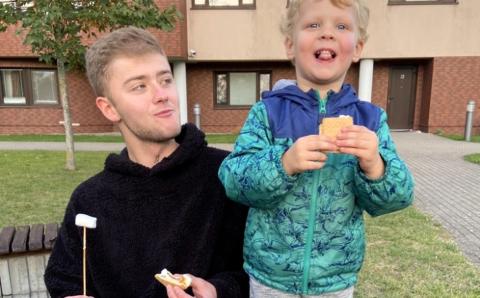I think the Pharisees perceived Jesus to be soft on sin. After all, they complained about Jesus eating with “tax collectors and sinners” (Matt. 9:11; Mark 2:16; Luke 5:30; 15:2). In Jesus’ ancient culture, “table fellowship indicated intimate relations among those who shared it” (The IVP Bible Background Commentary: New Testament). Rules for Jewish rabbis at the time would prohibit sharing meals with known unrepentant sinners. The “sinners,” on the other hand, would see Jesus’ eating with them as “a gesture of friendship and acceptance” (ESV Reformation Study Bible, note on Mark 2:15). Hence they called Jesus a “friend of tax collectors and sinners’” (Matt.11:19; Luke 7:34).
Consider the story of Zaccheus, a chief tax collector, in Luke 19:1-10. Tax collectors were Jews who collected taxes for the Roman Empire from their fellow Jews. They earned a living by charging more than was required and pocketing the difference as their commission. Jews saw tax collectors as traitors and thieves.
Zaccheus likely was the most despised as a chief tax collector in charge of other tax collectors. He was getting wealthy off his fellow Jews’ oppression. This was probably why he could not make his way to the front of the crowd to see Jesus. The crowd would not make way for him as they might for others who were short. Hence, Zaccheus had to run ahead and climb a sycamore tree in order to see Jesus.
In Jesus Through Middle Eastern Eyes, Bible scholar Kenneth Bailey explains that it was customary in the Middle East for villagers to greet and welcome an important guest before the guest entered the village. This happened in Luke 18:35 as Jesus approached Jericho. The blind beggar on the roadside heard the commotion of a crowd of greeters meeting Jesus just outside of town. This welcome party would include the customary offer of dinner and lodging for the night. Luke did not need to record this detail; his ancient readers would have understood what was happening.
Therefore, when “Jesus entered Jericho and was passing through” (Luke 19:1), it was understood that he had declined the offer (or multiple offers) of dinner and lodging from the welcoming party because he was just “passing through” rather than staying the night. According to ancient rabbinic writings, sycamore fig trees were allowed to grow only some distance away from town. So when Zaccheus was up a sycamore tree looking at Jesus, it was on the outskirts of town, and Jesus was on his way out of Jericho.
Imagine, then, the crowd’s shock and anger (v. 7) when Jesus asked to stay at the despised Zaccheus’ house after having declined the hospitality of more honorable hosts! Ancient rabbinic writings teach that if a tax collector enters a house, everything within it becomes unclean (Mishnah, Tractate Tohoroth 7.6). They would certainly see Jesus as being defiled, even sinful, by dining and staying in the chief tax collector’s house.
Note that Jesus, at the cost of his own reputation, offered Zaccheus his friendship and acceptance before Zaccheus showed any signs of repentance. But Jesus’ act of grace moved Zaccheus to repentance and a pledge to make financial restitution (v. 8). People’s judgment did not turn Zaccheus away from his life of greed, but Jesus’ mercy and kindness did.
Jesus told the Pharisees to learn the meaning of “I desire mercy, not sacrifice” (Matt. 9:13; Hosea 6:6). Mercy is how the healer heals the spiritually sick. “Mercy triumphs over judgment” (James 2:13).
About the Author
Shiao Chong is editor-in-chief of The Banner. He attends Fellowship Christian Reformed Church in Toronto, Ont.
Shiao Chong es el redactor jefe de The Banner. El asiste a Iglesia Comunidad Cristiana Reformada en Toronto, Ont.
시아오 총은 더 배너 (The Banner)의 편집장이다. 온타리오 주 토론토의 펠로우쉽 CRC에 출석한다.
You can follow him @shiaochong (Twitter) and @3dchristianity (Facebook).








